
Readers of this publication are more intimate than most with the circumstances surrounding the tragedy of the Boeing 737 Max, but just as a review, the crashes of Lion Air Flight 610 in October 2018 and Ethiopian Airlines Flight 302 five months later are all attributed to the malfunction of the maneuvering characteristics augmentation system.
Boeing claimed that the MCAS system was designed to create the same flight-control feel as the previous versions of the airplane, as well as compensate for the tendency of the more-forward-mounted, underslung engines to potentially raise the nose to a critical angle of attack at lower speeds and high power during manual flight operations.
In addition to software flaws, typical Boeing redundancy was not included in the MCAS. If a single failure occurred, notably the angle of attack sensors, the stabilizer trim would activate in the nose-down direction, potentially overpowering the crew. Adding salt to the wounds, reference to the function of the MCAS was absent from pilot manuals. As investigations progressed, it was determined that the manufacturer’s emergency- checklist fix for a malfunction, the runaway- stabilizer trim procedure, was inadequate.
Considering the tragedy of 346 lives lost, now what? As with all airplane accidents, more than one culprit is involved. Though the MCAS has received its fair share of the blame, the system is just the Band-Aid to the problem. The real problem is far below the surface and more difficult to address because it’s not tangible.
هذه القصة مأخوذة من طبعة January - February 2021 من Flying.
ابدأ النسخة التجريبية المجانية من Magzter GOLD لمدة 7 أيام للوصول إلى آلاف القصص المتميزة المنسقة وأكثر من 9,000 مجلة وصحيفة.
بالفعل مشترك ? تسجيل الدخول
هذه القصة مأخوذة من طبعة January - February 2021 من Flying.
ابدأ النسخة التجريبية المجانية من Magzter GOLD لمدة 7 أيام للوصول إلى آلاف القصص المتميزة المنسقة وأكثر من 9,000 مجلة وصحيفة.
بالفعل مشترك? تسجيل الدخول
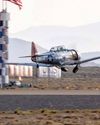
The Temple of Speed
Reno entices even this altitude-oriented pilot.

Flat Sixes
Fanatical artisans
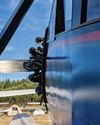
Blue over Green, Tent in Between
I’m old , I’m cranky. Why do I keep air-camping?
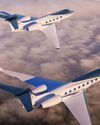
Gulfstream Reveals G400, G800
The product lineup gains large-cabin and ultralong-range mounts.
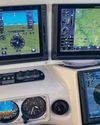
Every Airplane Requires a Checkout
Embrace the challenge of mastering a new machine.
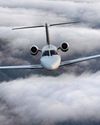
Fuhggedaboutit
Fifty-plus years of f lying forgetfulness
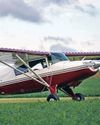
THE MAULE FAMILY APPROACHABLE AIRCRAFT
Choose your mount —the Maules do it all.

Sisters
“ Women certainly have the courage and tenacity required for long flights.” —Mildred Doran
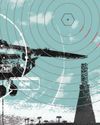
INSIDE OUT OR OUTSIDE IN?
What kind of pilot should you be?
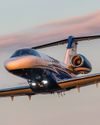
WE FLY: CESSNA CITATION CJ4 GEN2
THE FLAGSHIP CJ JUST GOT A WHOLE LOT BETTER.